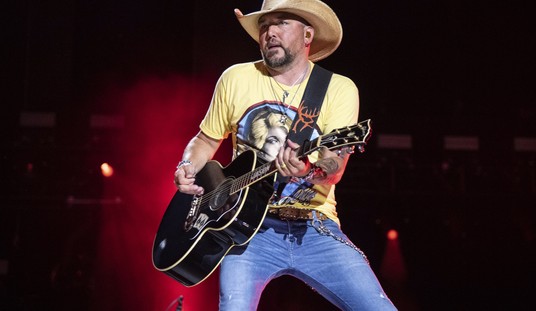Readers may rightly wonder, “isn’t every Democratic presidential primary a spending arms race?” Even for Democrats, Politico’s Brian Faler observes, the 2020 crop of Democratic presidential candidates sure promise a whoooole lotta new spending. In fact, “trillion has become the new billion,” Faler writes, and suddenly Barack Obama’s massive $787 billion Porkulus bill suddenly “seems quaint”:
Virtually every major candidate has a proposal that would cost a trillion dollars or more, and even those positioning themselves as moderates, like Pete Buttigieg, have multiple trillion-dollar plans.
It increasingly looks like an arms race, where a proposal needs a 13-digit price tag to appear bold and plans costing mere billions risk being seen as unserious. Both Kamala Harris (D-Calif.) and Julián Castro have $10 trillion plans to address climate change. Elizabeth Warren (D-Mass.) would spend about $1.9 trillion to address college tuition costs. Cory Booker (D-N.J.) proposes spending $2.5 trillion to expand tax credits for the poor. …
It’s a big change from not that long ago, when politicians ran away from the T-word — one reason why Obama’s stimulus package clocked in at $787 billion was because lawmakers didn’t want to cross the trillion-dollar threshold.
“People don’t seem scared at all now — in fact, it’s the opposite,” said Marc Goldwein, senior vice president and senior policy director for the Committee for a Responsible Federal Budget. “It’s a race to see who can one-up each other with the bigger plan.”
Faler writes that the GOP isn’t pure either because the 2017 tax cut “cost” $1.5 trillion. That, however, gets the problem backward, although even that doesn’t let the GOP off the hook anyway. Tax cuts are not “spending” — they are the opposite of spending. Tax cuts are a means of allowing people to keep their own money rather than have government spend it for them.
In theory, anyway. In practice, the GOP-controlled Congress and Republican president did almost nothing to slow down spending, which is the actual driver of deficits and debt. That failure to seriously address overspending and massive borrowing to float federal benefits drained whatever residual seriousness was left in budget fight. It turned out that neither party in Washington took it seriously, or at least seriously enough to have a real debate over it.
Since no one takes it seriously any more, suddenly unserious proposals to spend imaginary money have nothing but upsides. If we’re going to go broke, the strategy appears to be, let’s make sure we blow smoke up everyone’s skirts before we do. No one’s demanding to know where the money will come from, so why worry? Happy days are here again, even if the skies above will crash in the end. By that time, we’ll all be dead and it will be our grandkids dealing with the budgetary fallout, so bombs away!
At this point, the only means left to force Congress to take this seriously is an Article V convention and a balanced-budget amendment imposed by the states. Congress has proven itself incapable of self-discipline when it comes to spending, and the executive branch has been nothing but an enabler under the leadership of both parties. The judiciary can’t enforce a budget discipline that doesn’t exist in the Constitution. It’s time for the states to assert their role in the power-sharing arrangement and fix this problem before Washington drains them of their own resources to feed the budgetary black hole that’s threatening to swallow us whole.







Join the conversation as a VIP Member